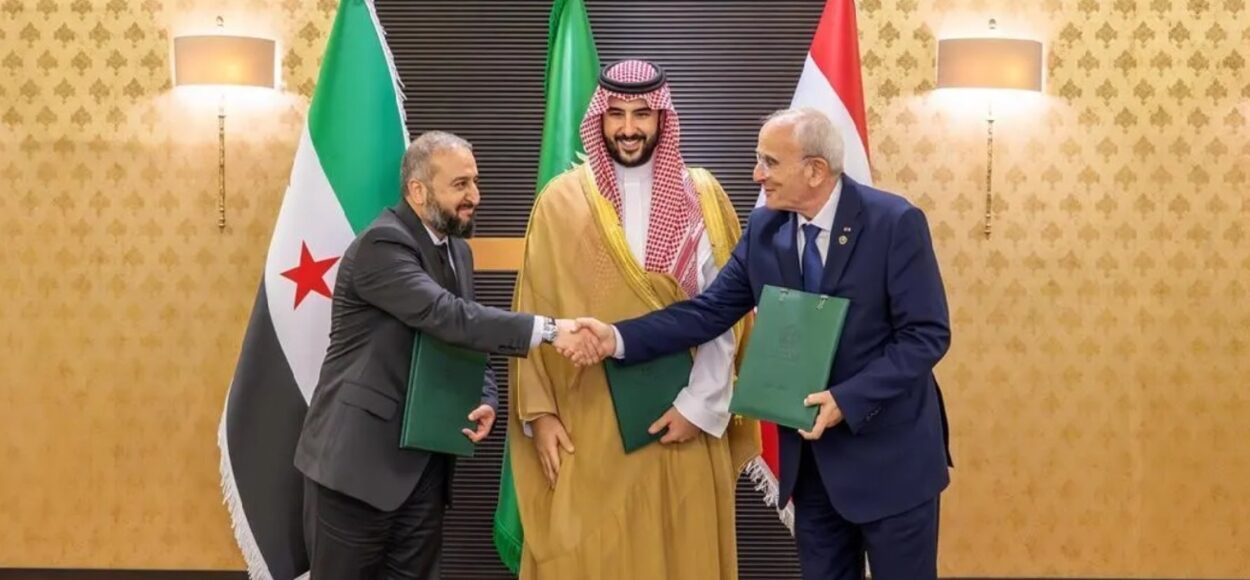Lebanon and Syria Sign Landmark Border Demarcation Agreement with Saudi Mediation
In a significant move towards regional stability, Lebanon and Syria have signed a historic agreement to demarcate their shared border, with Saudi Arabia playing a pivotal mediating role. This landmark accord aims to enhance security, curb smuggling activities, and strengthen diplomatic ties between the neighboring countries. The agreement is expected to lay the groundwork for improved bilateral relations and regional cooperation, potentially influencing other border disputes in the Middle East.
Background: A History of Tense Borders
The Lebanon-Syria border, stretching approximately 330 kilometers, has long been a source of contention and instability. The lack of clear demarcation has facilitated illegal activities, including smuggling and unauthorized crossings, contributing to strained relations between the two nations. This porous border has often been exploited by armed groups, leading to security challenges for both countries.
Recent clashes in border areas have underscored the urgency of addressing these issues. Over the years, unregulated movement of people and goods has led to economic challenges, with Lebanon in particular struggling to curb the smuggling of subsidized fuel and food products into Syria. Additionally, the presence of various militant factions along the border has exacerbated security concerns.
The Agreement: Key Highlights
The agreement, signed by Lebanese Defense Minister Michel Menassa and Syrian Defense Minister Mourhaf Abou Qasra in Jeddah, Saudi Arabia, emphasizes several critical points:
- Strategic Importance of Border Demarcation: Both nations recognize that clearly defined borders are essential for national sovereignty and regional stability. The demarcation process aims to establish clear territorial boundaries, reducing conflicts and illegal border activities.
- Enhanced Security Coordination: The accord calls for activating coordination mechanisms to address security and military threats, particularly those originating along the border. This includes increased military patrols, intelligence sharing, and joint security operations to prevent cross-border crime and terrorism.
- Formation of Specialized Committees: To implement the agreement effectively, both countries will establish committees tasked with addressing security challenges and overseeing the demarcation process. These committees will be responsible for ensuring transparency and adherence to international border agreements.
Saudi Arabia’s Mediating Role
Saudi Arabia’s involvement has been instrumental in facilitating this agreement. Hosting the talks in Jeddah, the Kingdom provided a neutral ground for dialogue, reflecting its commitment to fostering peace and stability in the region. The mediation effort aligns with Saudi Arabia’s broader strategy to enhance diplomatic engagement across the Middle East.
Lebanese political figures have praised Saudi Arabia’s leadership in resolving regional issues, highlighting its significant role in backing concord and supporting Lebanon’s sovereignty. The Kingdom has previously played a crucial role in mediating disputes within Lebanon and between Lebanon and other regional players, further solidifying its reputation as a key diplomatic force in the Arab world.
Reactions and Implications
The agreement has been met with widespread approval across political and diplomatic circles:
- Lebanese Officials: Walid Baarini, a former member of the Future Movement, commended Saudi Arabia’s leadership, stating that the agreement “confirms the significant role of the Kingdom in resolving Arab issues.” Fouad Makhzoumi, an independent parliamentarian, noted that the accord would help “control security and achieve stability on both sides of the border.”
- Regional Stability: The demarcation is expected to reduce smuggling and unauthorized crossings, contributing to economic stability and security in both countries. A clear border will also improve governance and law enforcement in affected areas.
- International Relations: The successful mediation by Saudi Arabia may set a precedent for resolving other regional disputes, showcasing the effectiveness of diplomatic intervention in the Middle East. This agreement could encourage similar diplomatic efforts in other contested border regions, such as those between Iraq and Syria.
Challenges Ahead
Despite the positive developments, several challenges remain:
- Implementation: Establishing clear borders in rugged terrains requires technical expertise and cooperation. Both countries must ensure that the demarcation process is conducted transparently and efficiently, potentially involving international experts.
- Security Threats: While the agreement aims to enhance security, addressing existing threats from militant groups and preventing future escalations will require continuous collaboration. Cross-border insurgent activity remains a significant concern, particularly from factions that oppose state authority.
- Humanitarian Concerns: The border areas are home to numerous communities with familial ties across the frontier. Ensuring that the demarcation does not disrupt their livelihoods is crucial. Displaced persons and refugees in these regions must also be accounted for to prevent humanitarian crises.
Next Steps
To ensure the agreement’s success, the following steps are planned:
- Follow-Up Meetings: Both nations have agreed to hold subsequent meetings in Saudi Arabia to review progress and strengthen cooperation on border issues. Regular diplomatic engagements will be essential to resolve emerging disputes.
- Technical Surveys: Joint teams will conduct surveys to accurately demarcate the border, considering geographical and social factors. These surveys will rely on satellite mapping and historical records to ensure fairness in territorial claims.
- Community Engagement: Engaging local communities in the border regions to address their concerns and incorporate their input into the demarcation process. Authorities must communicate clearly with affected populations to avoid tensions and displacement issues.
Conclusion
The border demarcation agreement between Lebanon and Syria, facilitated by Saudi Arabia, marks a pivotal step towards enhancing regional stability and security. By addressing longstanding issues related to undefined borders, the accord lays the foundation for improved bilateral relations and sets a positive example for conflict resolution in the Middle East. Continued commitment to implementing the agreement will be essential to realize its full potential and ensure lasting peace in the region.
For Saudi Arabia, this successful mediation reinforces its growing role as a key regional peace broker. For Lebanon and Syria, it opens doors for further diplomatic cooperation, economic collaboration, and security enhancements. If successfully implemented, this agreement could serve as a model for resolving other border disputes in the Arab world.
Do follow gulf magazine on Instagram
for more information click here


